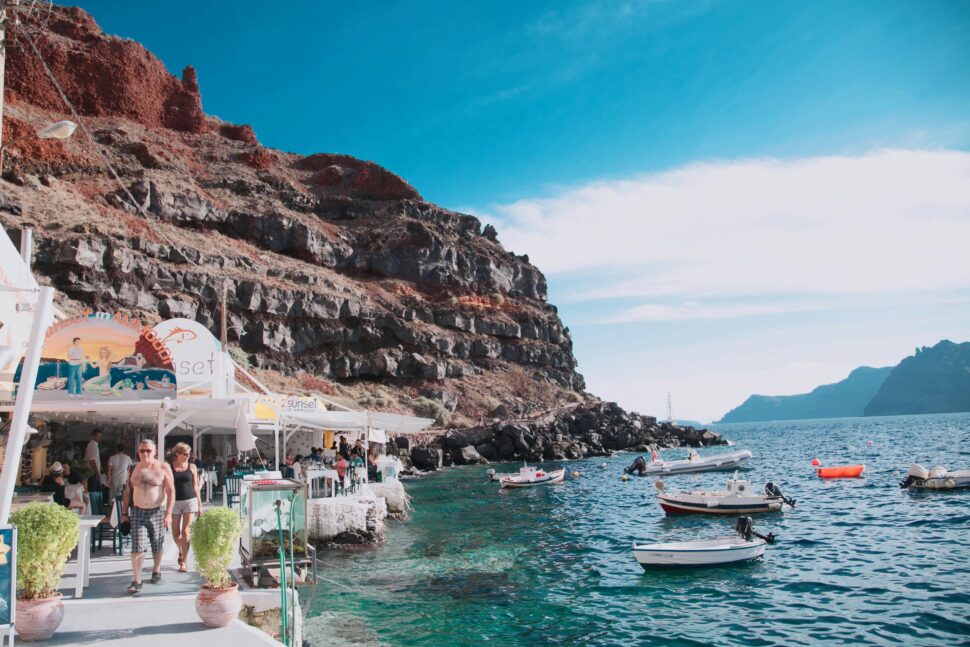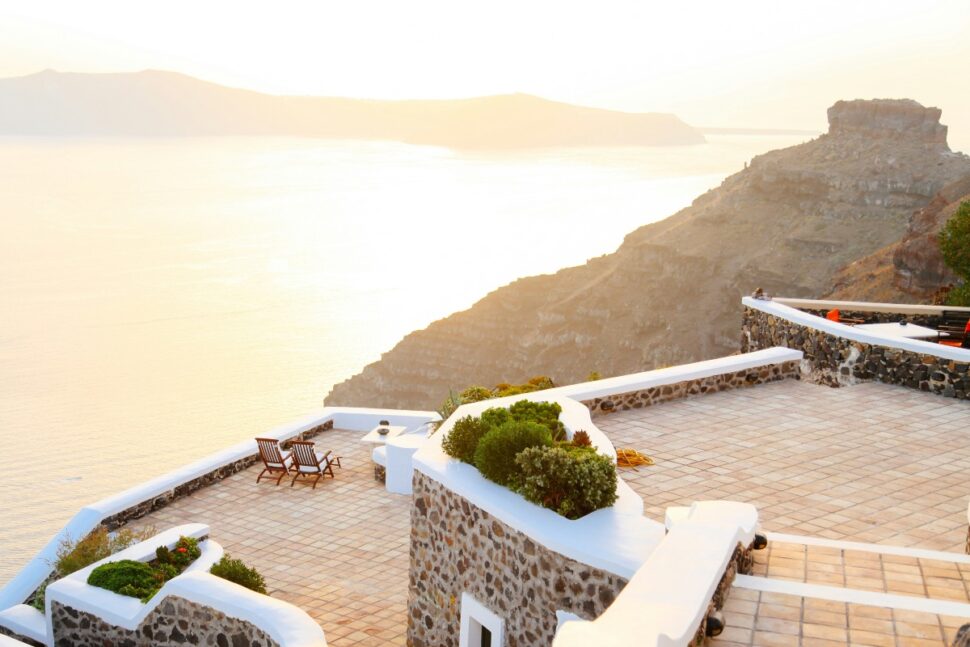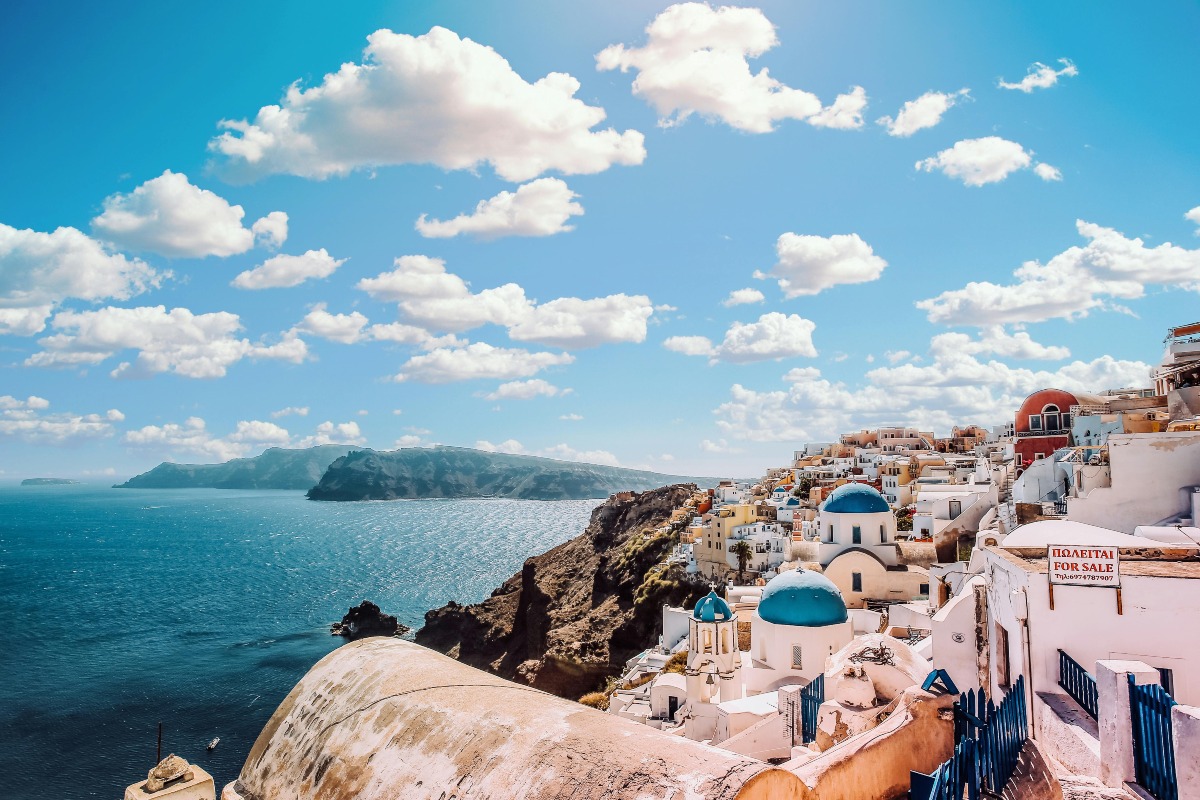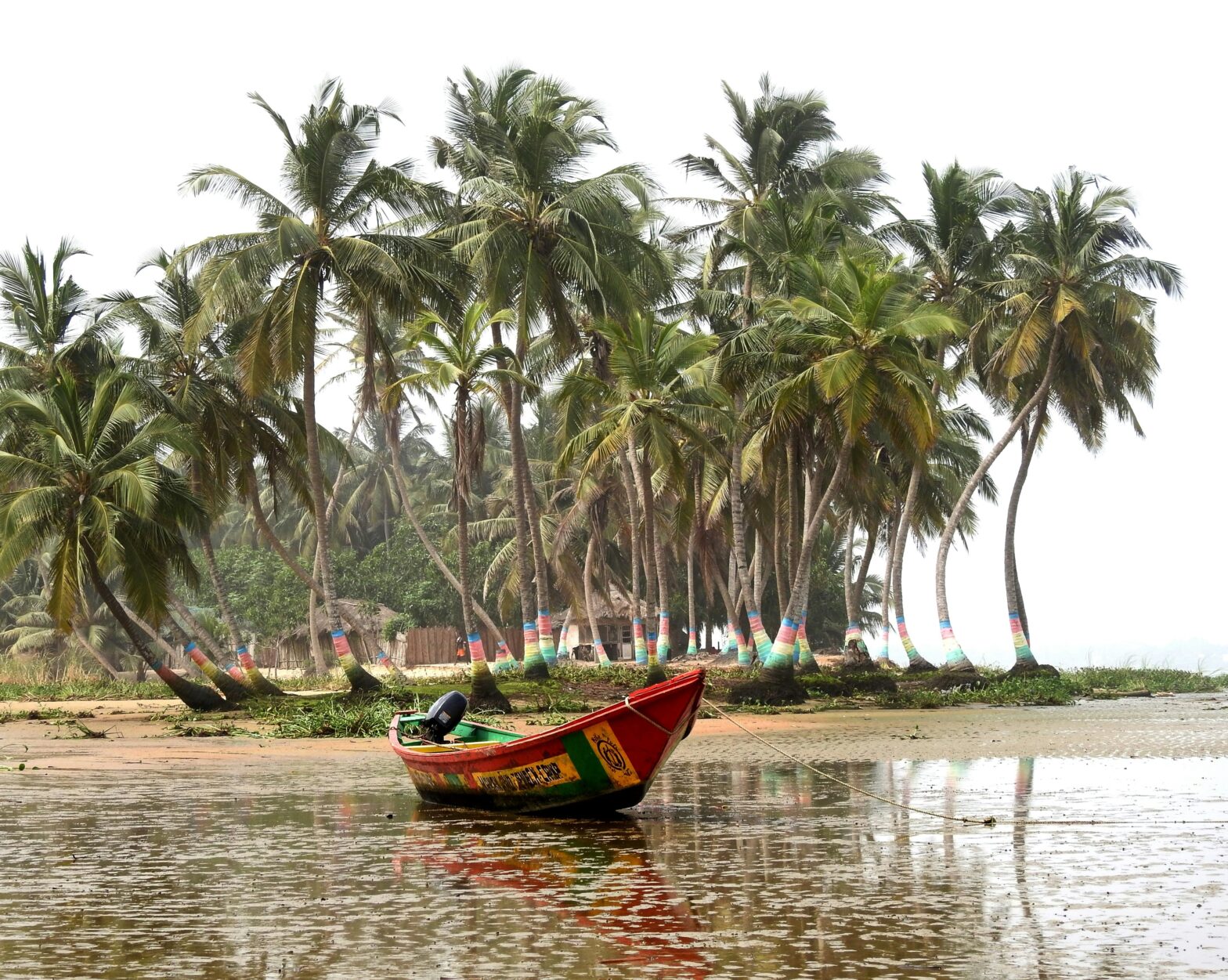Santorini is a jewel in the Aegean Sea. The stunning sunsets, white-washed buildings, and crystal-clear waters are world-renowned. However, a series of earthquake tremors have shaken the island, raising concerns about the safety of visiting this popular tourist spot.
Here, we will explore the current situation in Santorini, examining the official travel advisories and assessing the overall safety of tourists and solo travelers. We’ll also provide essential information to help you make an informed decision about your travel plans.
Official Travel Advisories
As of February 2025, the situation in Santorini has prompted several official bodies to issue travel advisories. The Greek government has declared a state of emergency on the island until March 3, 2025, following a magnitude 5.2 earthquake that struck on February 5, 2025. This declaration allows local authorities to implement necessary precautionary measures and allocate resources efficiently.
The US Embassy in Greece has released a natural disaster alert for US citizens. The warning advises citizens to follow instructions from local authorities, monitor local media and emergency alerts, and review the official guide from the Greek Ministry of Climate Crisis and Civil Protection for earthquake safety measures.
Is Santorini Safe For Tourists And Solo Travelers?

The recent seismic activity has undoubtedly raised concerns about the safety of visiting Santorini. While the island has experienced numerous tremors, no major damage has been reported. However, the situation remains uncertain, and authorities are preparing for the possibility of a larger quake.
Overall safety assessment: The Greek government and local authorities take the situation seriously. They are implementing precautionary measures to ensure the safety of both residents and visitors. Schools have been temporarily closed, and emergency crews have been deployed to the island. While the risk of earthquakes persists, the infrastructure and emergency response systems are being reinforced to handle potential scenarios.
Crime statistics and trends: The current focus is on natural disaster preparedness rather than crime. Santorini is generally considered a safe tourist destination, with lower crime rates than many other popular travel spots.
Transportation and bank safety: Ferry services and flights to and from the island have been increased to facilitate evacuations. However, poor weather conditions have affected some ferry routes. Travelers should stay informed about transportation options and any potential disruptions.
Health information and advisories: Additional medical personnel and ambulance crews from neighboring islands have been sent to Santorini. All hospital employees are on standby to assist those who have remained on the island.
Political unrest: There is no reported political unrest related to the current situation. The focus is entirely on managing the natural phenomenon and ensuring public safety.
While Santorini remains a beautiful destination and is usually safe, the current seismic activity presents an unpredictable element of risk. Tourists and solo travelers should carefully weigh the potential risks against their travel plans.
Common Scams To Be Aware Of In Santorini
While Santorini is generally a safe destination with a low crime rate compared to many popular tourist spots, it’s wise to be aware of potential scams that can occur in any frequented tourist area.
Taxi Overcharging: Some taxi drivers might attempt to take advantage of tourists, particularly those traveling from the airport or port to their accommodations. To avoid this, always ensure the meter is running or agree on a price before beginning your journey.
Donkey Ride Concerns: Donkey rides are popular in Santorini, but some operators may overcharge or mistreat the animals. It’s advisable to research reputable operators and clarify prices before agreeing to a ride.
Restaurant Bill Discrepancies: Be cautious of restaurants that might add extra items to your bill, hoping you won’t notice. Always review your bill carefully before paying to ensure accuracy.
Counterfeit Goods: Exercise caution when purchasing souvenirs, especially items claiming to be traditional Greek products. Some vendors may sell fake items at inflated prices, so buying from reputable shops is best.
Pickpocketing Awareness: While not as prevalent as in larger cities, pickpocketing can occur in crowded tourist areas. Keep your valuables secure and maintain awareness of your surroundings.
Boat Tour Misrepresentation: Some operators might promise luxurious cruises but deliver subpar experiences. Book tours through reputable companies or consult your hotel concierge for recommendations.
ATM Safety: Be cautious when using ATMs, especially in isolated areas. Always cover the keypad when entering your PIN and check for any suspicious devices attached to the machine.
How To Stay Safe In Santorini
If you decide to travel to Santorini during this period of increased seismic activity, here are some essential safety tips:
- Stay informed: Regularly check updates from local authorities, your country’s embassy, and reliable news sources.
- Follow official guidelines: Adhere to all safety instructions provided by Greek authorities and your accommodation.
- Be prepared: Familiarize yourself with earthquake safety procedures. The Greek Ministry of Climate Crisis and Civil Protection recommends identifying safe spots in each room, away from glass surfaces and exterior walls.
- Emergency kit: Pack a small emergency kit with essentials like a flashlight, batteries, first-aid supplies, and important documents.
- Avoid risky areas: Stay away from the ports of Amoudi, Armeni, Korfos, and Old Port (Paleos Limenas) in the Fira area, as advised by authorities.
- Be cautious in coastal areas: In the event of a strong tremor, immediately move away from coastal regions due to the potential risk of tsunamis.
- Keep devices charged: Power outages are possible, so keep your mobile devices fully charged, and consider carrying a portable power bank.
- Register with your embassy: If you decide to stay, register with your country’s embassy for easier communication in case of emergencies.
Where To Stay In Santorini

In light of the ongoing seismic activity in Santorini, choosing the right accommodation has become more crucial than ever. The Greek Ministry of Climate Crisis and Civil Protection advises visitors to opt for newer buildings or recently renovated properties that comply with modern earthquake safety standards, steering clear of old or abandoned structures.
Fira, the island’s capital, is a prime choice with its modern hotels and robust emergency response infrastructure. At the same time, the picturesque village of Imerovigli offers a quieter alternative without compromising on essential amenities. Oia, renowned for its breathtaking sunsets, boasts luxury hotels with potential enhanced safety measures. For those seeking a location further from the caldera, Kamari, a beach town on the eastern side, presents numerous newer resorts.
Inland, the traditional village of Pyrgos provides a unique perspective of Santorini, potentially offering reduced vulnerability to tsunami risks due to its elevated position. Regardless of the chosen location, experts stress the importance of inquiring about emergency procedures, evacuation plans, and communication protocols at any accommodation.
Best Time To Visit Santorini
Under normal circumstances, the best time to visit Santorini is typically during the shoulder seasons of April to May and September to October, when the weather is pleasant and crowds are smaller. However, given the current seismic activity, postponing non-essential travel to Santorini until the situation stabilizes is advisable.
If you have flexible travel plans, consider monitoring the situation over the coming weeks or months. Seismologists continue to watch the activity closely, but it’s difficult to predict how long the tremors will continue or if they might lead to a larger seismic event.
People Also Ask
Can I still enjoy Santorini’s beaches during this time? Beaches in Santorini are currently considered high-risk areas due to the potential for tsunamis following a strong earthquake. The Greek authorities advise avoiding coastal areas, especially in the event of strong tremors. It’s best to enjoy the island’s other attractions or postpone beach activities until the seismic activity subsides.
Are Santorini’s famous wineries and restaurants still open? Many businesses in Santorini remain open and have adapted to the current situation. However, it’s best to check directly with specific establishments, as some may have altered their operations. When visiting, be mindful of emergency exits and follow any safety instructions provided by the staff.
Should You Still Travel Here?
The decision to travel to Santorini at this time is a personal one that requires careful consideration. While the island’s beauty remains undiminished, the ongoing seismic activity presents an unpredictable element of risk.





